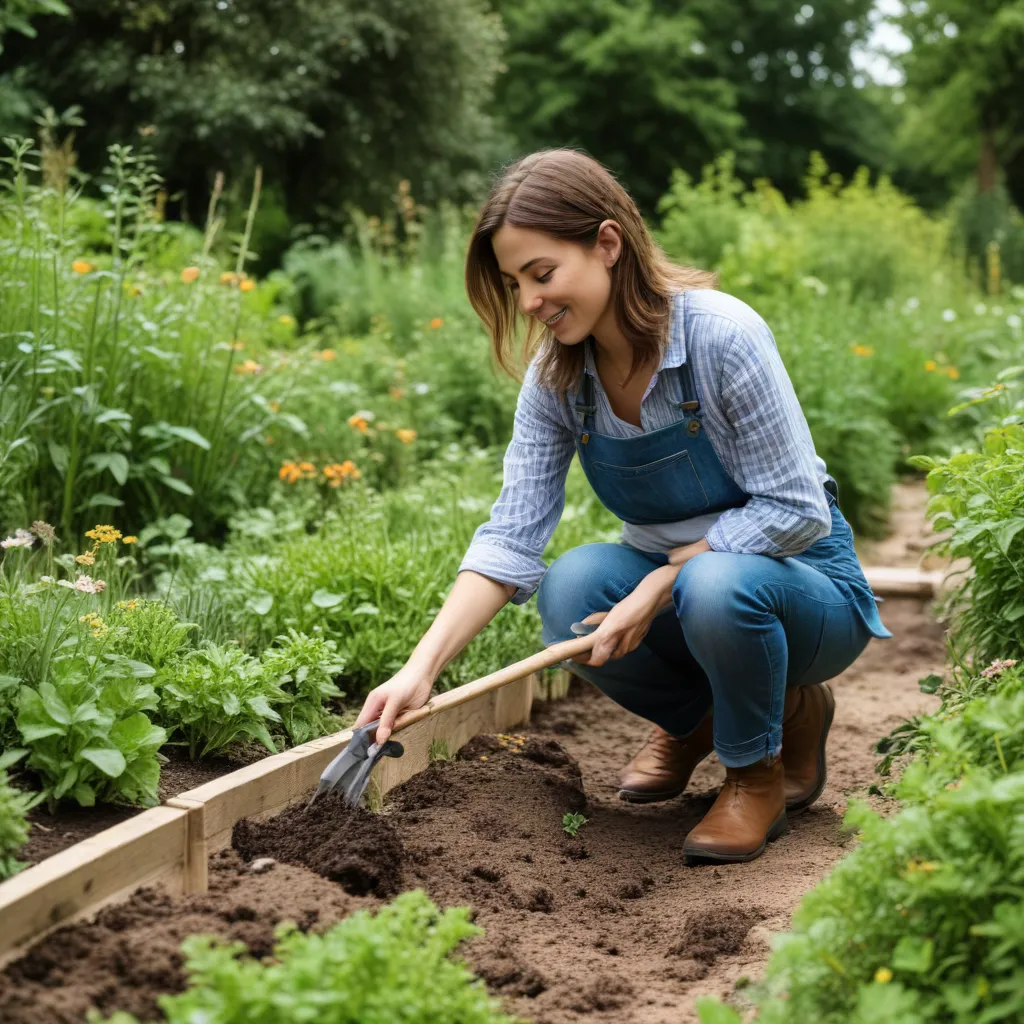
As a hospitality and wine expert for the Wine Garden Inn, I’m thrilled to share my insights on how to cultivate a flourishing garden, no matter the season. Whether you’re a seasoned green thumb or just starting to dip your toes into the world of home horticulture, these practical tips will help your garden thrive.
Soil Preparation
Healthy soil is the foundation for a vibrant garden. Begin by testing your soil’s pH acidity and nutrient levels. This will help you determine the best amendments to add, such as compost, lime, or fertilizers. Incorporate these into the soil before planting to ensure your plants have the optimal growing conditions.
Another important step is to aerate the soil regularly. This can be done with a garden fork or tiller, breaking up any compaction and allowing air and water to more easily reach the roots. Don’t forget to mulch your beds – a 2-3 inch layer of organic material like wood chips or leaves will help retain moisture and suppress weeds.
Watering Techniques
Proper watering is crucial, but can be tricky to master. The key is to water deeply and infrequently, encouraging the roots to grow deeper into the soil. This makes plants more resilient to drought.
Use a soaker hose or drip irrigation system to deliver water directly to the roots, minimizing evaporation. When hand-watering, focus on the base of the plants rather than spraying the foliage. And be sure to adjust your watering schedule based on weather conditions – plants will need more water during hot, dry spells.
Fertilizer Application
Fertilizers provide essential nutrients for plant growth and development. Opt for organic, slow-release formulas that feed plants gradually over time. Apply them according to the product instructions, taking care not to over-fertilize, which can damage roots.
For an added boost, consider foliar feeding by spraying a diluted liquid fertilizer directly onto the leaves. This allows the nutrients to be absorbed more quickly. Just be sure to apply these types of fertilizers early in the day to prevent leaf burn.
Native Species
When selecting plants for your garden, choose species native to your local region. These are naturally adapted to your climate and soil conditions, requiring less maintenance and water. Native plants also provide vital food and habitat for local wildlife, promoting a healthier, more balanced ecosystem.
For the Wine Garden Inn, we’ve incorporated a variety of native flowers, herbs, and vegetables into our on-site garden. Not only do they thrive with minimal effort, but they also complement the flavors of the estate-grown produce we use in our gourmet breakfasts and wine pairings.
Drought-Tolerant Plants
In areas prone to drought, incorporating drought-tolerant plants is a smart strategy. These varieties, such as succulents, lavender, and sage, are able to store water in their leaves, stems, or roots, allowing them to survive extended dry periods with less irrigation.
By including these resilient species in your garden, you’ll reduce your water usage while still enjoying a lush, vibrant landscape. Just be sure to group them together based on their watering needs to maximize efficiency.
Companion Planting
The concept of companion planting refers to strategically placing certain plants together to enhance growth, deter pests, or provide other beneficial interactions. For example, marigolds can help repel nematodes and aphids, while nasturtiums attract beneficial insects that prey on garden pests.
Experiment with different companion planting combinations to see what works best in your garden. You may be surprised by the synergistic effects that arise when you thoughtfully pair your plants.
Organic Pest Control
Avoiding synthetic pesticides is a top priority for the Wine Garden Inn. Instead, we rely on a variety of organic pest management techniques, including:
- Introducing beneficial insects: Ladybugs, lacewings, and praying mantises are natural predators that help keep aphids, mites, and other pests in check.
- Using physical barriers: Floating row covers, netting, or diatomaceous earth can physically block or deter pests from accessing your plants.
- Employing natural repellents: Essential oils, garlic, or pepper sprays can ward off many common garden pests without harsh chemicals.
By taking a holistic, integrated approach to pest management, you can keep your garden thriving while protecting the delicate balance of the ecosystem.
Seasonal Gardening
Adapting your gardening practices to the changing seasons is key to maintaining a productive and healthy garden year-round. In the spring, focus on getting your plants off to a strong start by preparing the soil, sowing seeds, and implementing frost protection measures as needed.
As summer arrives, shift your attention to watering, weeding, and managing pests and diseases. Mulching can help retain soil moisture and suppress weed growth during the hottest months. Don’t forget to keep an eye out for signs of heat stress and provide shade for sensitive plants if necessary.
Finally, in the fall, it’s time to start preparing your garden for the winter months. Remove any dead or dying plant material, add a fresh layer of compost, and get your beds ready for the dormant season. Many cool-season crops can even be planted in the fall for an early spring harvest.
By staying on top of these seasonal tasks, you’ll ensure your garden thrives no matter what Mother Nature has in store.
The Wine Garden Inn is committed to sustainable, organic gardening practices that not only produce delicious, nutrient-dense ingredients for our culinary offerings, but also promote the overall health and vitality of our local ecosystem. I hope these tips have provided you with a solid foundation to start or enhance your own home garden. Happy planting!
